The Habishiali Widows of Puri!
Dying with dignity for widows in Orissa still means being cremated in accordance with traditional Hindu rituals.
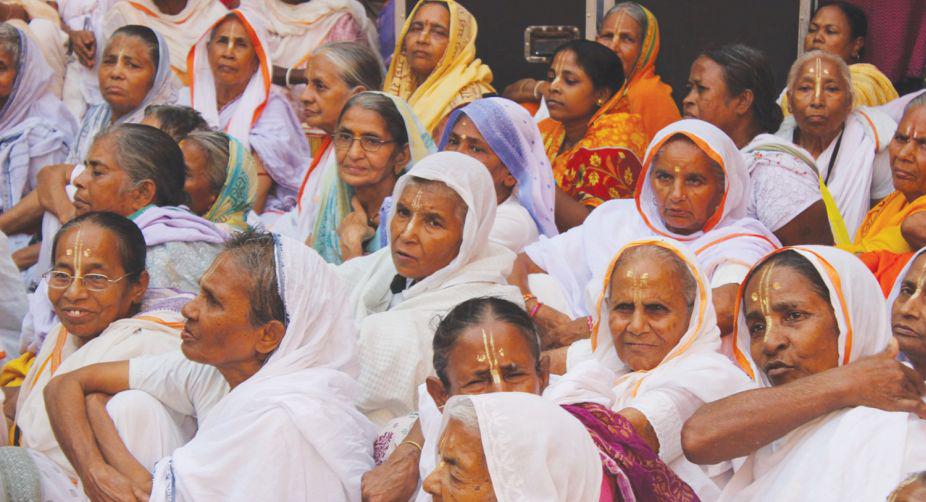
The sea-facing Swargadwar in puri town, literally meaning the gateway to heaven, draws people from all parts of the State to cremate the dead. The followers of the Jagannath cult believe that people cremated here make their way to heaven with their sins reduced to ashes on the pyre.
The holy town of Puri in Orissa is a magnet which draws hordes of elderly widows seeking refuge in Lord Jagannath after being ostracised and abandoned by their families. The distressing stories range from being exploited by family members to physical abuse in the patriarchal society we live in. Many widows are thrown out of family homes by their children or abandoned by their in-laws. Unfortunately, the acute discrimination and stigma are because these women are suddenly plunged into a void trying to cope with their loss and their individual choice is irrelevant. Without a man by her side, a woman has no respect, especially in rural Indian society. Most widows willingly accept these discriminatory and patriarchal rituals, believing them to be ordained by religion. Patriarchy efficiently uses strong cultural norms, even in moments of grief to further the oppression of women.
These unfortunate widows are the unacceptable shadowy face of Puri but during the month of Kartik, they suddenly become visible.
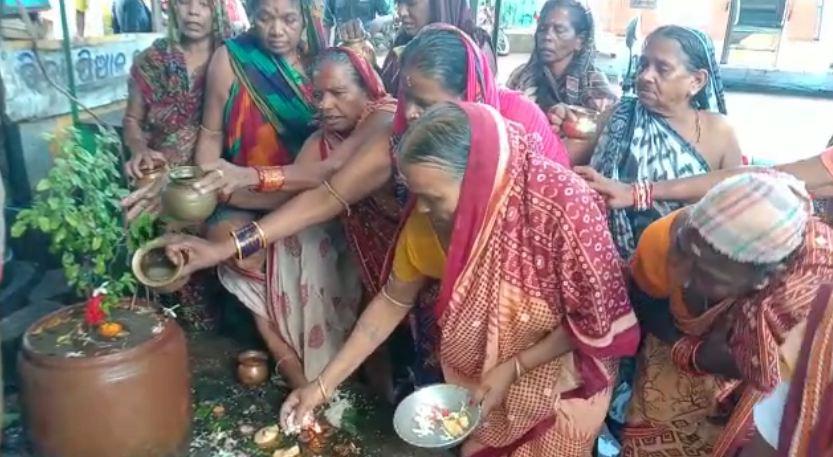
Clad in white sarees, their foreheads smeared with the ash, rosary beads around their neck and their eyes bereft of hope, these widowed habishalis spend their remaining days waiting for salvation.
Kartik Maas, also known as Damodar Maas, is described in the Hindu scriptures as the holiest of months for performing austerities to achieve Moksha. The month of Kartika is equally dear to Lord Sri Krishna and Mahadev.
Women of Odisha, especially the widows observe the Kartika "Rai Damodar Brata" for the whole month and important rituals that are followed include partial fasting and reading the Kartika Mahatmya from Padma Purana and observing the "Rai Damodar Brata".
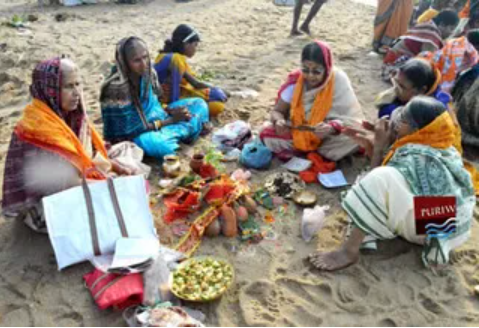
Devotees rise before dawn at the Brahma Muhurta and after bathing do the 'Balunka puja' where they worship the holy Basil/Tulasi. They visit Jagannath Temple daily early in the morning during Mangal Arati to have a morsel of Mahaprasad. The austerities include
taking food only once a day in the afternoon, which is known as “Habisha" & cooked with specific vegetables and pulses.
The last five days of this holy month are known as "Bagapanchuka" during which it is said even cranes turn pious & abandon eating fish.
The triad of Mahadadhi, Mahaprasad and Mahaprabhu offer a beacon of hope to the pilgrims in their quest to find inner peace.
The famous modernist poet of Orissa, Jayanta Mahapatra wrote about the widows in the holy city of Puri in his poem "Dawn at Puri" :
"White-clad widowed Women past the centers of their lives are waiting to enter the Great Temple. Their austere eyes stare like those caught in a net hanging by the dawn's shining strands of faith".
The poem was published in 1976 and addresses the hollowness of the rituals which have trapped the widows and their faith.
Until a few years ago, it was difficult to find a face among these hapless women that was not marked by anxiety, melancholy or sadness.
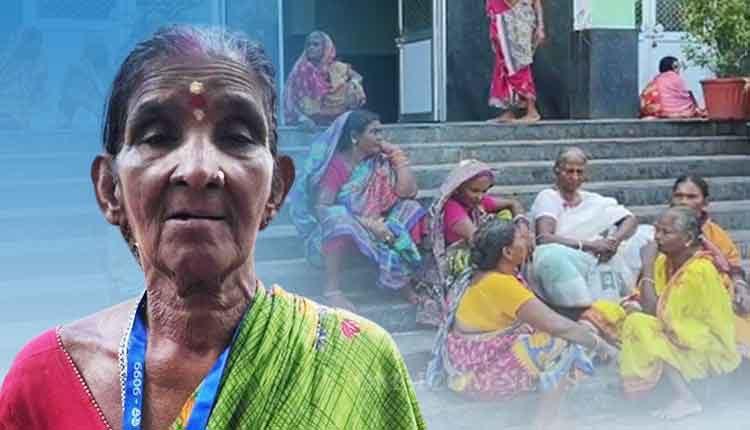
However, the state government has taken up certain welfare measures and organized the ‘Kartik Brata’ programme for ‘habisialis’ (elderly widow devotees who observe Kartik Brata at Sri Jagannath temple during the holy Hindu month of Kartik). Free Accommodation centres, transportation to the temple, mahaprasad and health have been set up by a proactive district administration has alleviated the sufferings of the pilgrims to a large extent. The Chief Minister of Orissa has recently inaugurated a dedicated 5-storey government shelter "Brundavati niwas" for the habishialis.
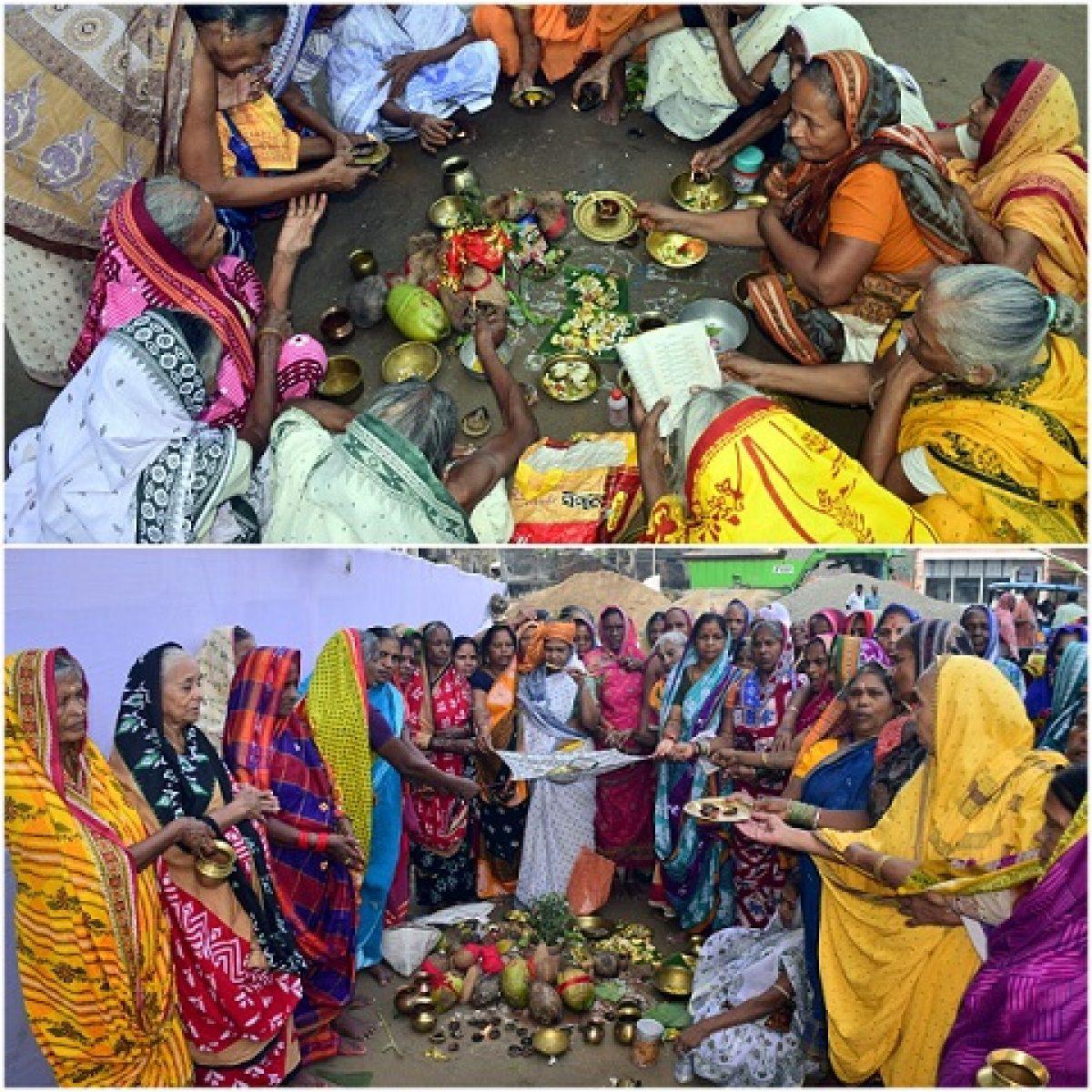
Today there are still difficulties to be overcome but tentative smiles, twinkling eyes and souls filled with hope for a better future can be seen.
As the lord of the universe enthralls his devotees with the exquisite Radha Damodara & Bankachuda Veshas in Kartika month, his Tribrikrama and RajRaheswar vesha reminds me of a quote by Rumi: Knock, And He'll open the door Vanish, And He'll make you shine like the sun Fall, And He'll raise you to the heavens Become nothing, And He'll turn you into everything.
Comments (9)








